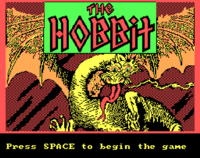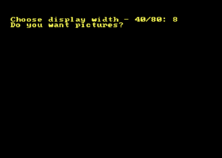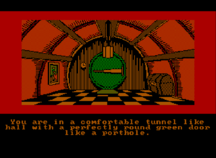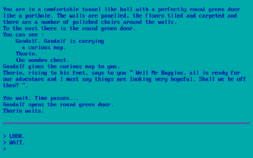User:Thijshijsijsjss/Human Parser/Mood Organs
'A 481. Awareness of the manifold possibilities open to me in the future: new hope that --' 'I know 481,' he interrupted. He had dialed out the combination many times; he relied on it greatly. (Dick, 1968, p. 3)[1]
The Mood Organ is a device with which, by punching in a number, a human user can instantly alter his or her mood. (Beckett, 2015)[2] What organ is pumping blood through my project? This page collects moodboards -- dials of any kind.
Note that I also have a reader, which is used for general referencing, digestive reading and broad notetaking. This page is meant to specifically collect material in relation to the Human Parser project: powerful game mechanics, relevant quotes, etc.
The Game Opening Reference Sheet
The Game Opening Reference Sheet is a prototype of research, a collection of references in presentation, mechanics or theme. In particular, a collection of 'opening sequences' in classic and retro style games: an opening sequence being the sequence between a game's title screen (if present) and the start of gameplay.
An example sequence from The Hobbit (1982):

|

|

|

|
At the moment, the reference sheet resides on my machine. Two screenshots are presented below. Eventually, this might take a different shape. It would be great to have as a resource to share, that others might append to as well.

|

|
Games
Chants of Sennaar
Chants of Senaar is a puzzle / stealth / adventure game in which a player moves through a tower while deciphering scripts (Rundisc, 2023)[3]. Much like Heaven's Vault (Inkle, 2015)[4], these scripts reveal themselves to the player gradually through interactions with the game world.
While not present in Chants of Senaar, this gradual reveal presents an opportunity for a flavor of nonlinearity (done brilliantly in Heaven's Vault). I could see Human Parser using similarly 'unlocked' knowledge / options in the form of keywords used in the text-adventure. Maybe there is even an in-game manual, or diary. E,g, having emotions 'unlockable' through interactions with entities that express these somehow could be interesting. (Also reminds me of Doki Doki Literature Club's daily journal (Team Salvato, 2017)[5])
Papers, Please
Papers, Please[6] is a videogame by Lucas Pope in which a player acts as a border control agent. The core gameplay involves cross-referencing documents to verify a person's identity. This is done under a timer: after so many minutes, the day ends, and you're paid according to the number of correctly assessed cases. With this money, you need to provide for your family. While playing, you'll find yourself with a tight budget, so you'll speed up and make educated gambles -- or hasty oversights. Meanwhile, the people you're assessing tell you about the ways life's unfairly treating them. Why can't you make an exception this time? It is an empathically challenging game.
The mechanic of referencing documents and assessing subjects, I could see work for Human Parser as well. Much like in The Robot Assembly Line and Social Performance Testing Facility, a player could assess robot and human behavior. This bears resemblance to e.g. autism screening tests, that while often intended as helpful, are in reality a harsh assessment of what is deemed accepted, normal, good, functional and healthy.
(That said, it only works for Papers, Please because of the 'meta game' aspect: there's an interesting friction inherent in needing to assess carefully, while also needing to assess quickly)
Portal
Portal (2007, Valve Corporation)[7] is a puzzle game about a human in a robot testing facility. What more is there to say?
Portal 2
Portal (2011, Valve Corporation)[8] is another puzzle game about a human in a robot testing facility. What more is there to say?
For Writing
The Anthroposcene Reviewed
I have often said that I am not the target audience for John Green, the fiction author[9]. But I definitely am the target audience for John Green, the person.
I've long been following the many projects the Vlogbrothers undertake, and it is one of my (increasingly few) comfy corners on the internet. John in particular resonates with me. Especially his way of living with and communicating about mental illness, and the oh so strenuous effort to remain hopeful. The most common criticism I read of him, is that he is 'cringingly corny'. But to me, that's exactly the strength: the beautiful vulnerability of exposing yourself as hopeful even in mental low tide.
No work of John Green better captures this then his podcast turned book The Anthroposcene Reviewed. In this book, John rates various aspects of the human-centric planet on a 5-star scale. This is done through meandering personal essays, that ultimately are never really about the subject of review, and much more about deeper, unspoken themes of struggle and hope. I find these essays very touching. I find myself reacting not just to the personal stories, but by their invitation of intimacy, also to the various other sources that make up the essays: poetry, academic material, ...
I have these feelings in the back of my mind while writing my thesis. The format I've chosen for myself, a collection of annotations annotating a game manual, are like micro essays. They allow me to use multiple modes of address: one can be academic, while another can be highly personal. Or at least, I hope so. Days in which I'm not so sure, I try to think about The Anthroposcene Reviewed and the powerful blend this is able to present.
User:Thijshijsijsjss/Battles the Pale Grasses of Pink V
This is a text I wrote in the Christmas break after my year's first Special Issue. It feels a little silly to put my own work as a reference, but it is a text I'm fond of, and that exhibits one feature in particular I want to pull from for the thesis. The text is build through repition of certain phrases. In each repition, I think it carries something more than is conveyed by just words. The suprise of the new context, and the (subjective) association that is made. In part, this is also the power of The Anthroposcene Reviewed.
I hope to achieve a similar effect in my thesis. Not by a similarly constrained writing style, but by similarly sprinkling themes and ideas throughout the annotations. Each time in a different context (a different context of words, a different manual connection, a different moment in gameplay), the associations made will be a little different. I believe this will convey something I will never be able to in words.
Resources
References
- ↑ Dick, P.K. (1968) Do Androids Dream of Electric Sheep?. London, Great Britain: Orion Publishing House.
- ↑ Beckett, C (2015) The Penfield Mood Organ in Do Androids Dream of Electric Sheep?. Available at: https://reactormag.com/that-was-awesome-the-penfield-mood-organ-in-do-androids-dream-of-electric-sheep/ (Accessed 2024-11-23.)
- ↑ Chants of Sennaar (2023), PC [Game], Toulouse, France: Rundisc
- ↑ Heaven's Vault (2019), PC [Game], Cambridge, UK: Inkle
- ↑ Doki Doki Literature Club (2017), PC [Game], Boise, ID, USA: Team Salvato
- ↑ Papers, Please (2013), PC [Game], Saitama, Japan: Lucas Pope
- ↑ Portal (2007), PC [Game], Bellevue, WA, USA: Valve Corporation
- ↑ Portal (2011), PC [Game], Bellevue, WA, USA: Valve Corporation
- ↑ Even though I have enjoyed some of his fiction books when periods of low mental bandwidth demand me to indulge in some young adult fiction.
